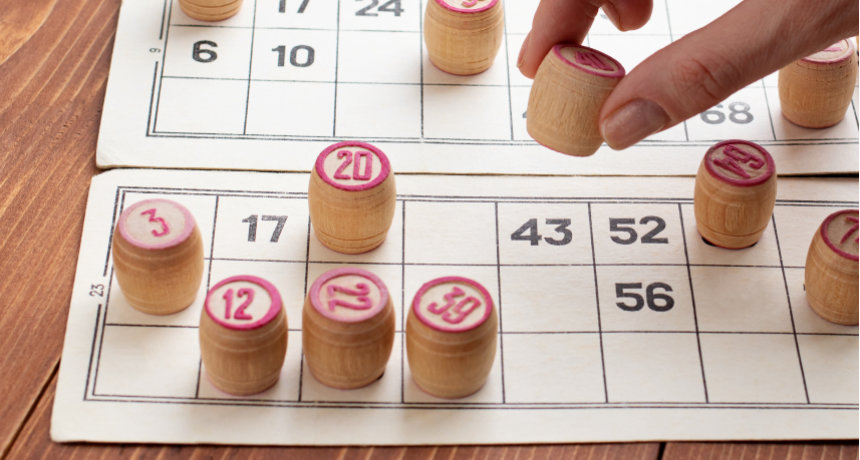
Understanding Lottery Odds: Why That 'Sure Banker' Probably Isn't
"I have a sure banker for today's game."
This phrase echoes through betting shops and WhatsApp groups across Nigeria daily. The elusive "sure banker" – a supposedly guaranteed winning number – is part of lottery folklore. But how "sure" can any lottery prediction actually be?
This article breaks down the cold, hard mathematics behind lottery games, explaining probability in simple terms to help you make more informed decisions about your play. We'll explore why those confident predictions from friends, family, or online tipsters rarely deliver, and how understanding the true odds can lead to more enjoyable and responsible lottery participation.
The Basic Mathematics of Lotteries
To understand why "sure bankers" are mathematically impossible, we first need to understand how lottery odds work.
Simple Probability Example
Let's start with a simple example: a basic 6/49 lottery, where you select six numbers from 1 to 49.
To calculate the odds of matching all six numbers, we use this formula:
Total possible combinations = (49 × 48 × 47 × 46 × 45 × 44) ÷ (6 × 5 × 4 × 3 × 2 × 1)
This equals 13,983,816 possible combinations. This means your odds of selecting the winning combination are 1 in 13,983,816 – roughly the same probability as being struck by lightning twice in your lifetime.
For popular games like Baba Ijebu (Premier Lotto) with the 5/90 format, the odds become even more astronomical for matching all five numbers.
Odds for Different Lottery Games in Nigeria
Here are the odds for some popular lottery games in Nigeria:
| Game | Format | Odds of Jackpot Win |
|---|---|---|
| Baba Ijebu | 5/90 | 1 in 43,949,268 |
| Ghana Games | 5/90 | 1 in 43,949,268 |
| Green Lotto | 5/90 | 1 in 43,949,268 |
| National Lottery | 6/49 | 1 in 13,983,816 |
The Myth of "Hot" and "Cold" Numbers
One common strategy is tracking "hot" numbers (frequently drawn) and "cold" numbers (rarely drawn). This approach feels logical – if a number has appeared frequently, surely it's "lucky," right?
The mathematical reality is quite different. Lottery drawings are independent events, meaning each draw has no connection to or memory of previous draws. The lottery machine doesn't "remember" that number 23 was drawn last week or that number 45 hasn't appeared in months.
This misconception is known as the "gambler's fallacy" – the mistaken belief that if something happens more frequently than normal during a given period, it will happen less frequently in the future (or vice versa).
A Real-World Test
In 2017, a mathematician at Lagos State University conducted an experiment analyzing five years of Baba Ijebu results, comparing strategies based on hot/cold numbers against random selection. The result? Random selection performed just as well as "strategic" approaches based on prior drawings.
The Problem with "Sure Banker" Tips
"Sure banker" tips come from various sources:
- Self-proclaimed lottery experts
- Friends or family members who "had a dream"
- Online prediction services charging subscription fees
- Social media groups dedicated to lottery predictions
But consider this: if someone truly had a reliable system for predicting lottery numbers, would they:
- Share it with others, reducing their own potential winnings?
- Sell the information for small subscription fees rather than becoming billionaires themselves?
The logical conclusion is that these "systems" simply don't work.
Psychological Factors Behind Belief in Predictions
Despite overwhelming mathematical evidence, many players continue to trust in predictions. Why?
Confirmation Bias
We naturally remember when predictions come true and forget the many times they fail. If a tipster gives you five numbers and two hit, you might focus on the partial success rather than the overall failure.
The Narrative Fallacy
Humans are storytelling creatures. We prefer a good story ("I had a dream about these numbers") over random chance. When someone wins following a dream or intuition, it makes for a compelling story that spreads, while thousands of failed prediction stories never get told.
The Expert Effect
We tend to give credibility to self-proclaimed experts, especially when they use complex-sounding systems or claim insider knowledge.
When Odds Actually Matter: Game Selection
While no selection method improves your chances within a specific game, choosing which lottery to play does make a mathematical difference.
For example, choosing to play a 6/42 lottery instead of a 6/49 lottery improves your odds from 1 in 13.9 million to 1 in 5.2 million – still extremely unlikely, but a significant mathematical improvement.
Similarly, games with bonus numbers or additional features often offer better odds for winning smaller prizes, even though the jackpot odds remain astronomical.







